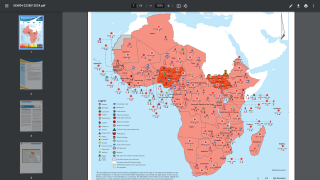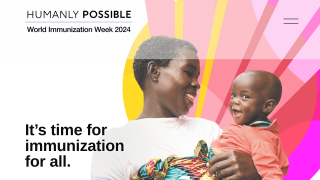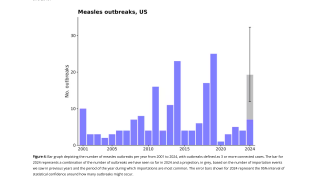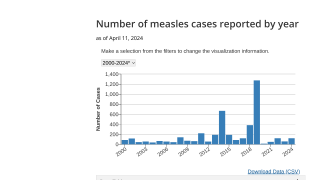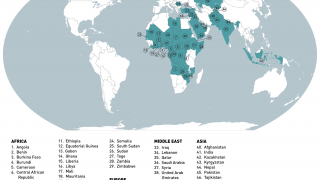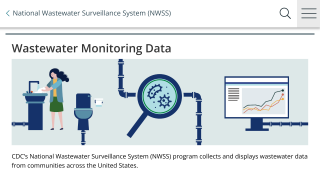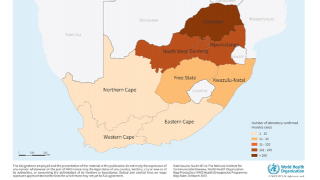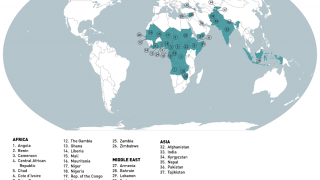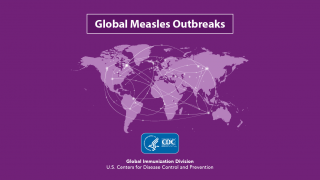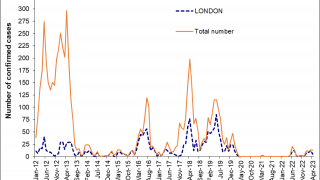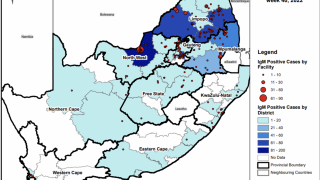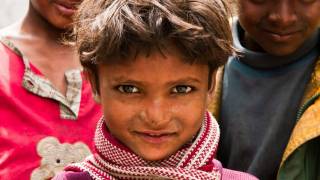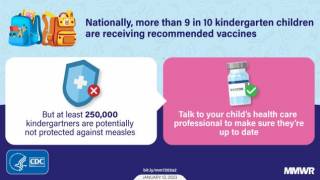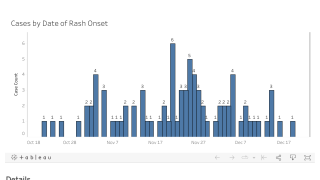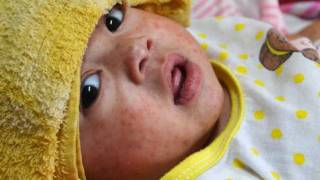Measles Under-Vaccinations Forecast Health Risks in the Americas

As Vaccination Week in the Americas 2021 prepares to launch, the WHO’s PAHO urges countries to close the immunization gap that resulted in hundreds of thousands of children missing vaccinations in 2020.
The 2021 theme – “Vaccines bring us closer” – needs to focus on closing the current immunization breach.
The PAHO’s call for stepped-up immunization coincides with the Vaccination Week in the Americas and World Immunization Week immunization campaigns during April 24-30, 2021.
In 2020, the PAHO reported 13.9 percent fewer children (379,208 in total) received their dose of MMR1 vaccine against measles, mumps, and rubella, compared to the year before.
Furthermore, in 2019, endemic transmission of measles was reestablished in Brazil.
A recent study found 32.9% of individuals in Brazil aged 10–40 years old had no antibodies against measles; 39.3% of total individuals with documented evidence of measles vaccination did not have anti-measles IgG, though only 20.2% of individuals with documented evidence of rubella vaccination lacked anti-rubella IgG.
And the United States is facing a re-emergence of measles, particularly among populations with low vaccination coverage. Measles outbreaks occurred in multiple states in 2017–19, following imported cases in travelers arriving from countries with active local transmission.
In the USA, the M-M-R-II vaccine is commonly available. It is indicated for simultaneous vaccination against measles (rubeola), mumps, and rubella (German measles). This vaccine is usually given to people 1-year-old or older.
“The Americas has been at the forefront of reducing deadly and life-altering disease through vaccination,” said Dr. Cuauhtemoc Ruiz Matus, Chief of PAHO’s Immunization Unit, in a press release issued on April 23, 2021.
“In recent years, we have seen a dangerous decline. This year’s Vaccination Week in the Americas is a chance not only to celebrate the availability of immunization but also to get vaccination back on track.”
According to PAHO reporting, between 2013 and 2019, the number of countries and territories reporting that 95% of children under 1 year of age had received all three DTP vaccine doses declined from 19 to 13.
In 2020 in the WHO Region of the Americas, 18.2% fewer children (474,395 in total) received all three shots of DPT3 vaccines against diphtheria, tetanus, and pertussis, compared to 2019.
Amid the decline in immunization in 2020, there was good news.
During the 2020 vaccination week, sixteen countries immunized populations against influenza, prioritizing health care workers, older adults, and people with chronic illness. More than 100 million people were vaccinated, reducing the potential that health systems already taxed by COVID-19 could be overwhelmed by flu patients.
Dr. Etienne called for government policies to strengthen public confidence in vaccination. She urged the promotion of immunization during the COVID-19 pandemic and supported the introduction of COVID-19 vaccines.
Measles is a highly contagious but vaccine-preventable disease. Its symptoms include acute rash, cough, and enanthem (including Koplik’s spots) on the oral mucosa. Its most common complications include diarrhea, pneumonia, otitis media, laryngotracheobronchitis, and encephalitis.
For over 40 years, PAHO’s Expanded Program on Immunization (EPI) has helped make the Americas a global leader in eliminating and controlling vaccine-preventable diseases, such as rubella, congenital rubella syndrome, measles, and neonatal tetanus. Since the creation of the EPI in 1977, countries have moved from using six vaccines in their national vaccination schemes to an average of more than 16 vaccines, which represents greater protection for the population.
PrecisionVaccinations publishes research-based news.
Our Trust Standards: Medical Advisory Committee




